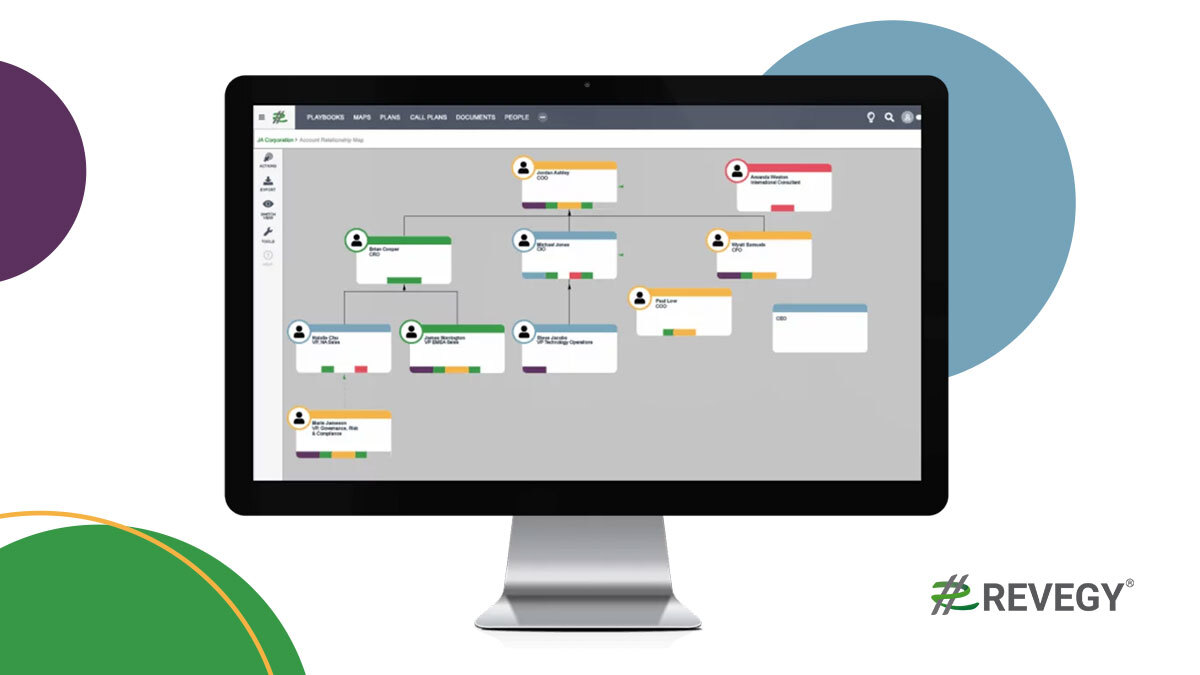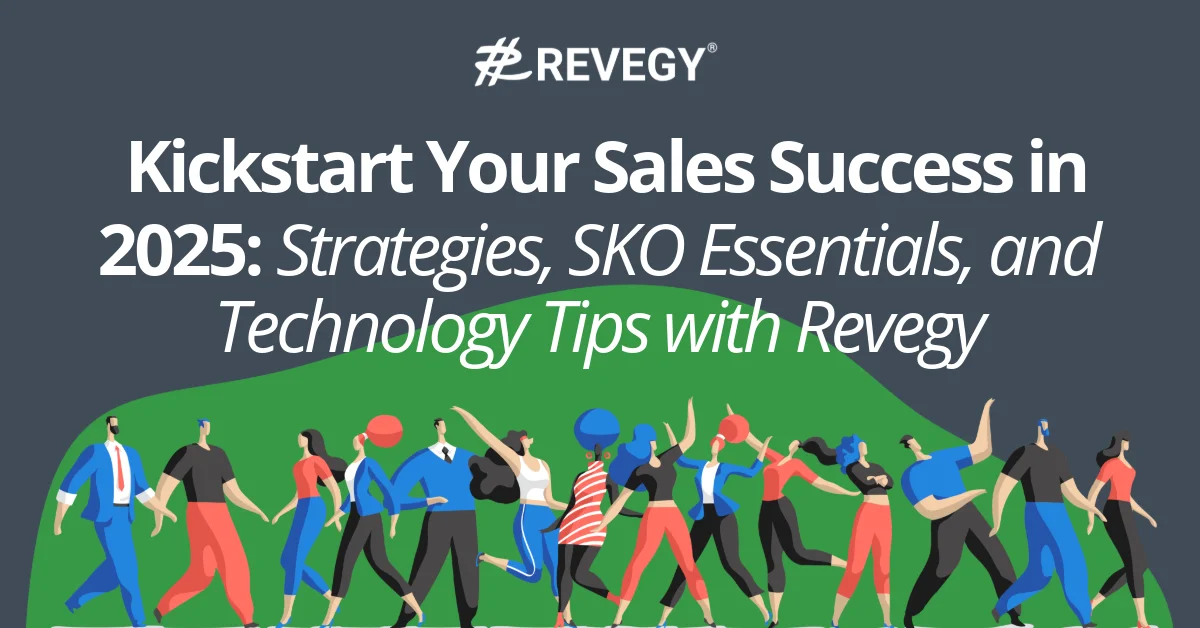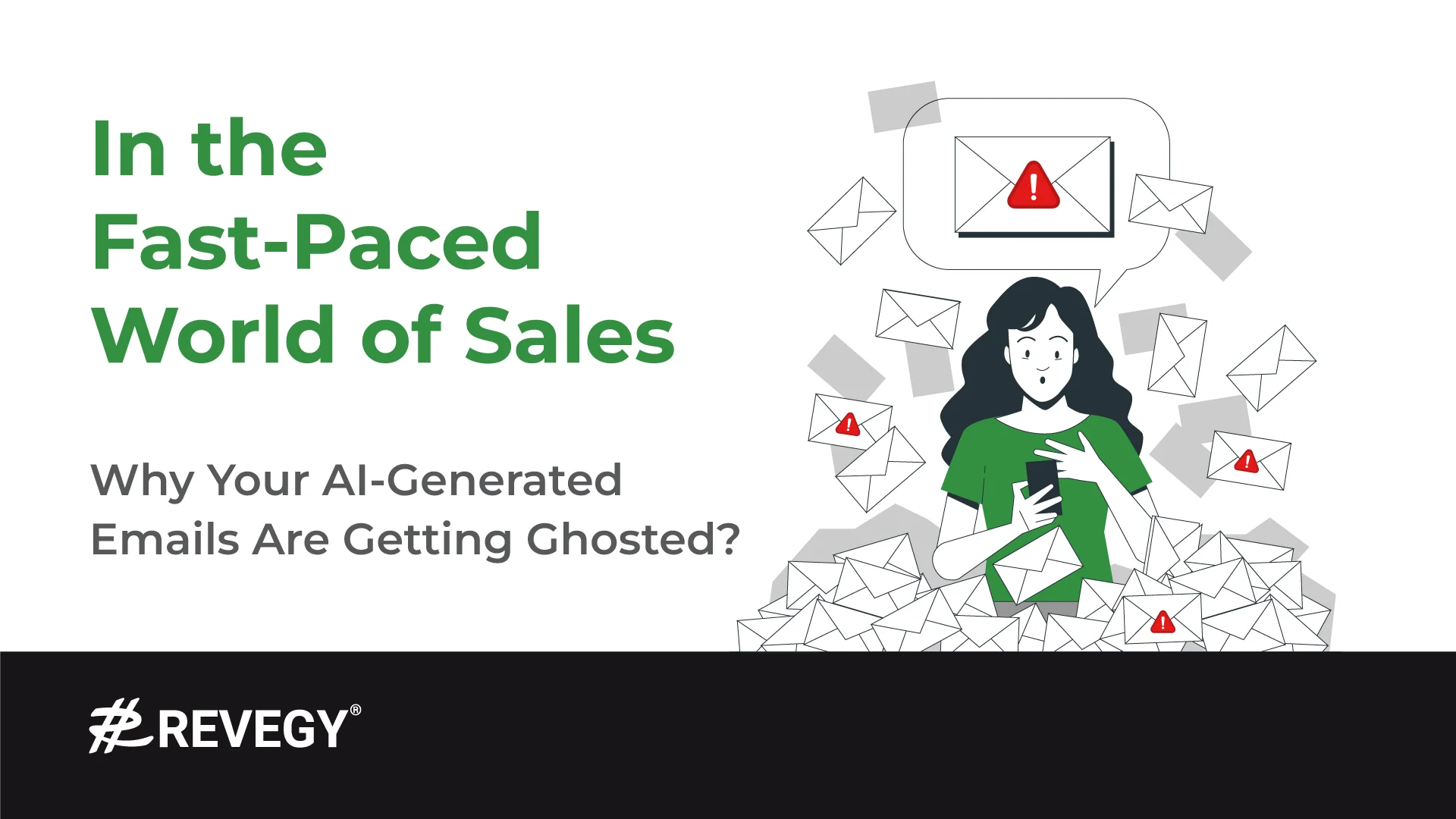In the competitive B2B landscape, focusing on specific high-value accounts has proven to be a vital strategy for long-term success. Key accounts are identified as a company’s most valuable clients. They are the most likely to bring in big chunks of revenue and build lasting relationships. Unlike traditional sales methods that cast a wide net, ABS is about precision and personalization.
However, the journey to managing these accounts is no cakewalk.
In this article, we’ll explore the importance of account-based sales and learn proven strategies that transform key accounts into thriving success stories. Let’s get started.
What is Account-Based Sales? (ABS)
ABS is an approach that maximizes the value generated from existing clients by building a mutually useful partnership. Unlike traditional sales, ABS focuses on understanding deeper needs and building solutions that address those needs. This customer-centric strategy not only satisfies clients but also boosts revenue. It’s about engaging multiple stakeholders within a single account, ensuring a holistic approach.
Benefits of Implementing ABS Software for Streamlined Growth
Adopting dedicated ABS software emerges as a game-changer for all businesses. It overcomes the limits of common Customer Relationship Management (CRM) systems. Here’s how ABS software drives growth in the B2B sales landscape:
1. Increased Customer Retention
By gaining deeper insights into client preferences, challenges, and aspirations, ABS software helps sales enablement teams offer personalized solutions. Customization builds lasting bonds with clients, leading to increased retention rates. And loyal clients are more likely to commit to long-term partnerships, offering consistent revenue streams. With ABS, it’s not just about retaining a contact but an entire account, encompassing multiple stakeholders.
2. Enhanced Customer Lifetime Value (CLV)
ABS allows you to unlock the full potential of each key account. By identifying and focusing on cross-selling and upselling opportunities within an account, organizations can significantly increase the Customer Lifetime Value (CLV). This is achieved by engaging various decision-makers and influencers within the account.
The software acts as a compass, guiding sales operations teams to new growth domains within existing accounts.
3. Reduced Marketing Expenses
Strategic account management is naturally cost-effective. ABS software ensures that resources are distributed optimally. It focuses on accounts with the highest growth potential. By gaining a clear understanding of client preferences, the software helps marketing teams craft targeted campaigns. These are more likely to yield higher returns on investment. These campaigns are tailored to resonate with multiple stakeholders within the target account.
By embracing account-based sales software, businesses can unleash the full potential of their key accounts and position themselves as partners in their clients’ growth journeys.
However, conventional CRM for account management systems is not fully capable of addressing the intricacies of account-based sales. Let’s see why CRM systems fail to meet the demands of strategic account management and how ABS software effectively bridges this gap.
What is a CRM?
Customer Relationship Management (CRM) is a technology utilized by businesses to manage all of their interactions with current and potential customers. The primary objective of a CRM system is to streamline processes, primarily in sales, but also in marketing, customer service, and support, by compiling customer data from various channels into a centralized platform.
CRM systems, such as Salesforce and Microsoft Dynamics 365, facilitate efficient management and analysis of customer interactions and data through features like contact management, interaction tracking, and lead management. They automate email communications, integrate with various tools, and provide valuable analytics and reporting.
While CRMs enhance customer experience, team collaboration, and enable data-driven decisions by centralizing customer information and automating workflows, they may fall short in managing the nuanced, strategic approaches required in account-based sales (ABS). Specialized ABS software, like Revegy, provides additional tools and insights for a more strategic, account-wide approach, going beyond the capabilities of traditional CRMs.
The Limitations of CRM in Meeting Account-Based Sales Needs
CRMs may be ideal for many sales operations. However, software account management has big limitations when it comes to account-based sales (ABS). ABS is a strategic approach to managing key client relationships. It extends beyond the control of traditional CRMs. Here’s why CRMs alone are not adequate for successful ABS:
1. Limited Customization for Key Accounts
CRMs treat all accounts equally, regardless of their importance. This is a major drawback when dealing with key accounts that demand a customized approach. In CRMs, key accounts are often generalized with other accounts, making it challenging to focus and strategize on them.
ABS requires a nuanced approach, targeting multiple contacts within an account, which traditional CRMs might not support.
2. Lack of User-Centric Empowerment
CRMs are usually run by IT teams. Hence, the platforms may not match the needs of sales and account managers. The mismatch between software design and user needs can lead to inefficiencies. Account managers would be forced to work on complex systems that don’t align with their objectives. ABS demands a platform that offers insights into the entire account, not just individual contacts.
3. Backward-Looking Focus
Traditional CRMs are great at tracking past sales and customer interactions. But they lack the long-sighted vision needed for ABS. Account-based sales software needs insights that guide them toward growth opportunities. It’s about forecasting the needs of an entire account, understanding the dynamics between different stakeholders, and crafting a strategy that appeals to all of them.
4. Insufficient Strategic Guidance
ABS involves planning and executing long-term strategies that bring growth to key accounts. While CRMs track transactional data, they often lack the tools to guide the execution. ABS requires a more strategic approach, understanding the interplay between different departments and stakeholders within the target account.
5. Incomplete Picture of Key Account Complexity
Key accounts are marked by close relationships and diverse organizational structures. CRMs for account management fall short of capturing the depth of analysis needed to understand these complexities. ABS demands a holistic view of the account, understanding the relationships, hierarchies, and dynamics that influence decision-making.
Observing these limits, businesses should recognize the need for specialized account-based sales software. Such software is built to address the challenges of strategic account management. Let’s look at the key components of ABS and how dedicated ABS software bridges the gap left by traditional CRMs.
Bridging Gaps: Key Components of Effective Account-Based Sales
Successful account-based sales tools focus on strategic planning, collaboration, and a deep understanding of client needs. While a traditional account management CRM fall short in providing these, dedicated ABS software has elements that bridge the gap, helping businesses to thrive in their key account relationships
Comprehensive Account Profiles
ABS software allows you to create in-depth account profiles, capturing vital information about key clients. These profiles go beyond surface-level details to add organizational structures, stakeholder roles, and relationship dynamics. This comprehensive view is essential in ABS, where understanding the entire account, not just individual contacts, is crucial.
Strategic Planning and Execution
Key accounts need strategic planning that goes beyond just transactions. ABS software has tools to develop and execute long-term plans aligning with client objectives and business growth. It’s about crafting a strategy that resonates with all stakeholders within the account, ensuring alignment and collaboration.
Revegy’s platform is purpose-built to empower account managers with the intelligence and tools needed to drive optimal revenue paths within key accounts. By offering real-time views, strategic execution frameworks, and collaborative workspaces, Revegy ensures that account managers can focus on delivering value and nurturing mutual growth.
Collaborative Workspaces
Collaboration is central to successful ABS, as it involves multiple stakeholders. ABS software has collaborative workspaces where sales teams, marketing, customer service, and other relevant departments can come together, share insights, and align strategies. This multi-departmental collaboration is a hallmark of ABS, ensuring that the entire organization is aligned in targeting and engaging the key account.
Relationship Mapping
Understanding the intricate network of relationships within key accounts is a vital step. ABS software comes with relationship mapping, allowing account managers to visualize stakeholder connections. This visualization is crucial in ABS, where understanding the dynamics and influence of various stakeholders can make or break a deal.
Revegy also offers this pivotal tool. Revegy’s platform, complete with relationship mapping, improves your capacity to build lasting connections that underline your strategic account-based sales approach.
Data-Driven Insights
ABS software provides data analytics that helps in decision-making. Analyzing historical interactions, purchase patterns, and market trends, Revegy enables you to identify growth opportunities and potential challenges. In ABS, these insights are crucial for crafting personalized strategies that resonate with the entire account.
Performance Tracking and Optimization
Regular performance tracking is crucial for assessing the success of ABS strategies. Revegy comes with customizable dashboards and reports that give you real-time visibility into account performance. This performance isn’t just about sales numbers but also about engagement, stakeholder satisfaction, and alignment.
Incorporating these elements, ABS software bridges the gap between traditional CRMs and the needs of strategic account-based sales. It allows businesses to build lasting relationships and exceed client expectations. Next, let’s check out a step-by-step approach to building a robust ABS strategy.
Building a Resilient ABS Strategy: A Comprehensive Blueprint for Success
Making a foolproof account-based sales (ABS) strategy is like solving a puzzle. Each piece is vital in the larger picture of a successful client relationship. Below is a step-by-step guide that outlines the creation of an ABS strategy to bridge the gap between the client’s needs and your business goals.
Step 1: Building Foundations Through Research
To cater effectively to your target accounts’ needs, it’s paramount to understand their identity and preferences. Start by collecting info about the client, such as business size, niche, location, history, and competitor list.
Revegy not only centralizes this knowledge but also provides insights into the account’s organizational structure and key stakeholders, enabling more effective collaboration. Assembling the profile is the foundation of a personalized approach.
Step 2: Identifying Key Needs
Identify your client’s core needs by digging into data. Categorize them into two:
Product and Service Needs:
Identify specific demands related to your offerings. For example, if you’re providing project management software, anticipate a requirement for mobile functionality.
Relationship Needs:
Dive into the challenges and pain points behind these needs. This deeper understanding helps you craft tailored recommendations that solve your client’s needs…
Step 3: Understanding the Target Audience
When you engage with your target accounts, study their buyer personas and ideal customer profiles (ICPs). Understand the audience’s preferences and needs. Use this knowledge to frame your business case, positioning yourself as a strategic partner in your client’s success journey.
Step 4: Allocation of Team Resources
Choose team members aligned with the target account’s unique characteristics and requirements. ABS Managers should bring distinct attributes like:
- Well-experienced in managing high-expectation relationships.
- Industry-specific knowledge that translates into tailored services.
- Dedicated time for each account, ensuring deeper engagement.
- An early introduction to foster strong rapport and smooth collaboration.
Step 5: Crafting a Growth Strategy
Translate your insights into a broad strategy for your client’s growth. While the value of your product is paramount, consider expanding it with value-added propositions. Revegy’s platform can help identify areas where these value-adds can be most impactful.
These could include better support, tighter security measures, regular product updates, and bonuses. Align these value-adds with your client’s goals to show your commitment to their long-term success.
Step 6: Transforming Strategy into Action and Commitment
The effectiveness of your strategy depends on its execution. Clear communication is paramount. Whether it’s reward programs or response time guarantees, ensure you deliver on your promises. Establishing Service-Level Agreements (SLAs) formalizes your commitments.
Step 7: Align and Grow Together
Prioritize alignment with your primary contact before initiating the client relationship journey. Utilize Revegy’s tools to ensure alignment and engage the right individuals at opportune moments by visually mapping out relationships within the target account.
Revegy’s advanced tools enable comprehensive alignment between you and your client. The platform allows you to visually map out relationships within the target account, ensuring you engage the right individuals at the right time. Summarize and discuss your plans with your main contact to ensure alignment.
Use Revegy’s platform to summarize and discuss your plans with your main contact and ensure alignment.
Step 8: Enhance Client Satisfaction
Provide exceptional treatment to your target accounts. Go beyond contractual expectations, addressing additional requests to drive account growth and demonstrate your commitment to exceeding expectations. Addressing these requests not only drives account growth but also underscores your dedication to exceeding expectations.
Step 9: Continuous Refinement
As businesses and markets evolve, so do your clients’ needs. Regularly revisit your ABS strategy, ideally every quarter. Adjust based on the changing business landscape and maintain open communication channels to address emerging needs and mutual growth opportunities.
By diligently following these steps, you lay the foundation for a robust account-based sales strategy that fosters enduring relationships, supports growth, and ensures mutual success.
Bridge the Gap and Take Action for Success with Revegy
As the B2B world shifts gears, focusing on key accounts is a non-negotiable for sustained growth. By recognizing the limitations of conventional CRM systems and embracing dedicated ABS software, businesses can unleash the full potential of their key accounts.
Are you ready to elevate your account-based sales? From comprehensive account profiles to strategic planning tools and collaborative workspaces to relationship mapping, Revegy brings it all. Book a demo with us now to learn how Revegy can revolutionize your account-based sales efforts and drive unparalleled growth.
Schedule Your Demo Below!
FAQs
How Does ABS Differ from Traditional Sales Strategies?
Unlike traditional sales strategies that cast a wide net to capture as many leads as possible, ABS focuses on identifying, targeting, and nurturing high-value accounts through personalized sales and marketing strategies.
Why Should a Business Implement ABS?
Implementing ABS allows businesses to focus their resources on high-value accounts, ensuring personalized engagement, fostering long-term relationships, and maximizing revenue from key clients.
How Can Revegy Assist in Implementing ABS?
Revegy provides a platform that enables businesses to create comprehensive account profiles, strategize effectively, collaborate across teams, map relationships within accounts, gain data-driven insights, and track performance, all of which are crucial in successfully implementing ABS.
Is ABS Suitable for Small and Large Businesses alike?
Absolutely, account-based sales (ABS) is beneficial for both small and large businesses, enabling them to strategically focus on high-value accounts to optimize resources and enhance customer relationships.
How Does Revegy’s Relationship Mapping Work?
Revegy’s relationship mapping allows users to visualize the network of stakeholders within an account, understanding their roles, influence, and interrelationships, which is crucial for crafting strategies that appeal to all key decision-makers and influencers.
Can Revegy Integrate with Other CRM Platforms?
Revegy is designed to complement your existing tech stack and can often integrate with popular CRM platforms to enhance your ABS capabilities.
How Does ABS Contribute to Customer Retention?
ABS focuses on understanding and meeting the specific needs of high-value accounts, fostering satisfaction and loyalty, which in turn contributes to higher customer retention rates.
What Kind of Businesses Can Benefit from ABS?
Businesses across various sectors, especially those in the B2B domain, can benefit from ABS. It is particularly useful for businesses that have a range of high-value clients and seek to build long-term relationships with them.
How to Get Started with Revegy for ABS?
Embarking on your journey with Revegy begins with a personalized conversation. Engage with one of our representatives, who will guide you through a customized demo tailored to meet your unique needs, ensuring you grasp how our various tools can optimize your ABS strategy from the get-go. Let’s start the dialogue and explore how Revegy can elevate your account-based sales approach.
Is ABS Only Applicable to Sales Teams?
While ABS is sales-oriented, it involves collaboration across various departments, including marketing and customer service, ensuring a unified approach towards engaging and nurturing key accounts.
How to Measure the Success of an ABS Strategy?
Success in ABS can be measured through various metrics, including account engagement levels, revenue generated from key accounts, customer satisfaction and retention rates, and the achievement of mutually set goals with the client.
References:
https://www.accountmanager.tips/why-key-account-management-is-important/
https://www.gartner.com/en/sales/glossary/key-account-management-kam-
https://www.pipedrive.com/en/blog/key-account-management#what-is-key-account-management-kam
https://blog.hubspot.com/sales/key-account-management
https://www.accountmanager.tips/key-account-management-tools/
https://fitsmallbusiness.com/best-account-management-software/









